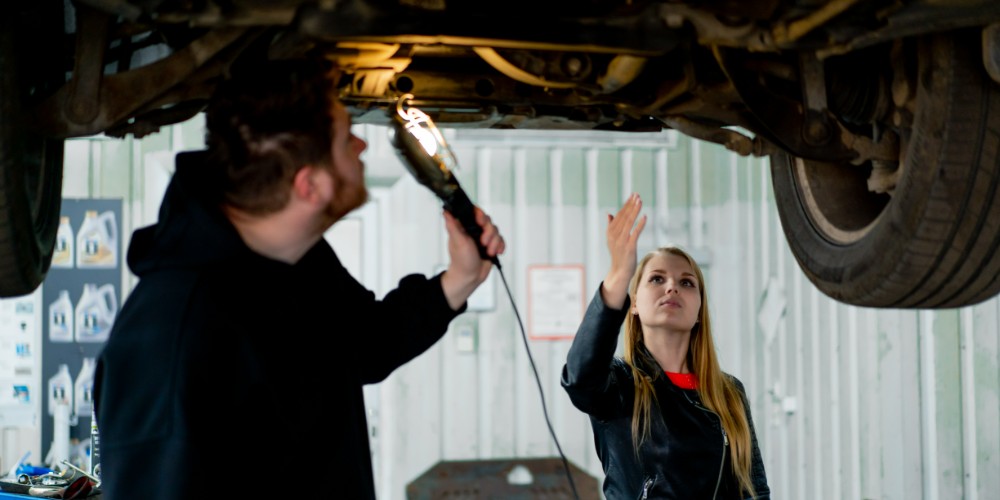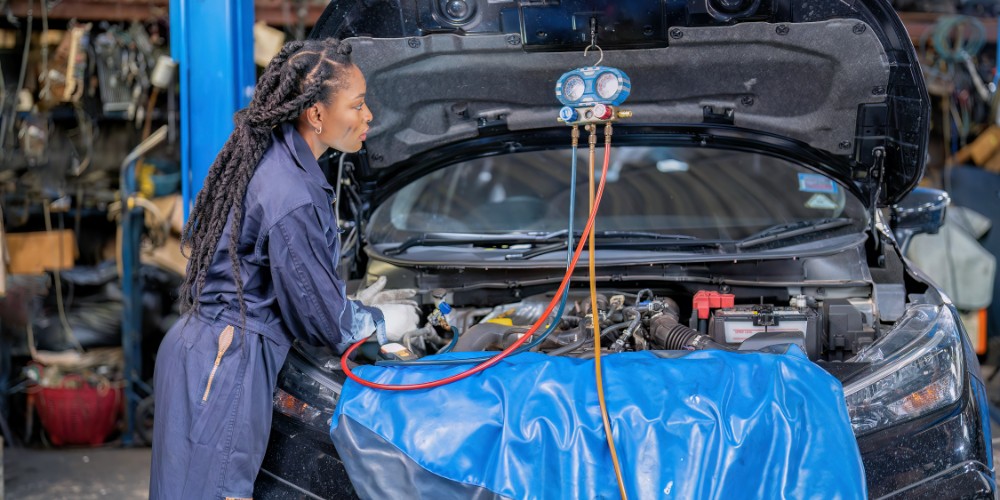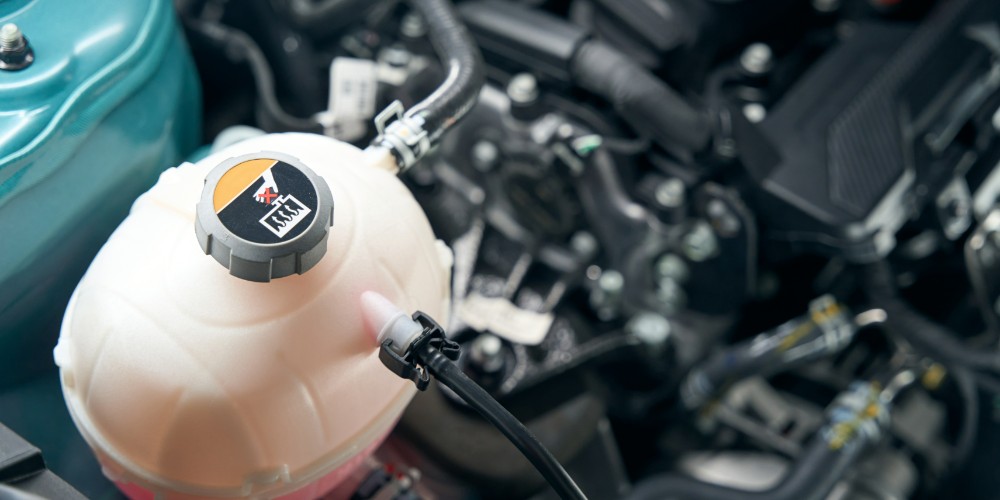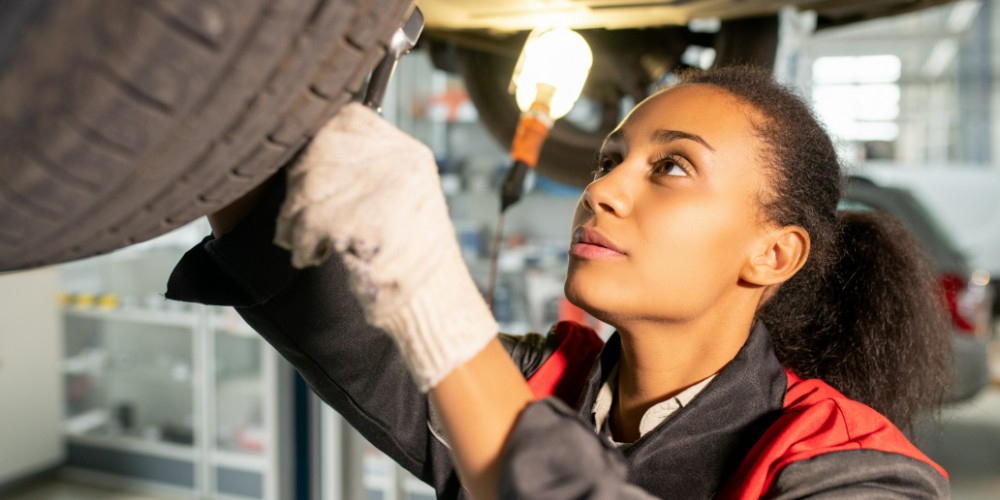Basic engine maintenance is at the heart of vehicle upkeep, yet it often seems daunting to those not mechanically inclined. This article aims to demystify the process, offering straightforward advice to empower car owners to take proactive steps towards maintaining their vehicle’s engine.
Understanding your engine
Before diving into maintenance, it’s crucial to have a rudimentary understanding of how your engine works. In simplest terms, a car engine converts fuel into motion, a process that involves many moving parts working in unison. The key components include the cylinders, pistons, crankshaft, camshaft, and timing system, all of which are integral to the engine’s function. Regular maintenance ensures these components operate smoothly, reducing wear and tear.

Checking and replacing engine oil
Engine oil is the lifeblood of your car. It lubricates the engine’s moving parts, minimises wear, and helps keep the engine clean by preventing the buildup of debris. Checking the oil level monthly and changing the oil and filter at intervals recommended by your car’s manufacturer are essential practices. For most vehicles, this is typically every 12,000 miles or 12 months, whichever comes first. However, this can vary, so it’s important to consult your owner’s manual.
When checking the oil, ensure the car is on level ground to get an accurate reading. If the oil is below the minimum mark on the dipstick or appears dirty and dark, it’s time for a change. While many opt for professional services, changing your engine oil is a manageable task for the DIY enthusiast, requiring only basic tools and a bit of know-how.
Keeping the cooling system in check
The cooling system prevents your engine from overheating, a critical function, particularly during the warmer months. It consists of a radiator, thermostat, water pump, and cooling fan. Ensuring the coolant level is within the recommended range is a simple yet vital aspect of maintenance. It’s also wise to have the system flushed and the coolant replaced approximately every two years.
Leaks in the system can lead to overheating and significant engine damage. Regularly inspect hoses and the radiator for signs of wear or damage and replace any compromised parts immediately. Additionally, keeping the front of the radiator clear of debris allows for optimal airflow and cooling efficiency.

The importance of the air filter
The air filter prevents dirt, dust, and other contaminants from entering the engine, ensuring only clean air is mixed with fuel for combustion. A clogged air filter can reduce fuel efficiency, increase emissions, and, in severe cases, lead to engine damage. Most manufacturers recommend replacing the air filter every 12,000 to 15,000 miles, but this can vary depending on driving conditions. Checking the filter regularly and replacing it as needed is a simple, cost-effective way to maintain engine health.
Spark plugs and ignition system
Spark plugs are pivotal in the engine’s combustion process, igniting the fuel-air mixture to produce power. Worn or dirty spark plugs can lead to misfires, reduced fuel efficiency, and increased emissions. Depending on your vehicle, spark plugs should be replaced every 30,000 to 90,000 miles. Consult your owner’s manual for specific recommendations.
Inspecting and replacing spark plugs is a straightforward process that can markedly improve engine performance. While you’re at it, check the ignition coils and replace them if you notice any signs of wear or failure.
Timing belt and serpentine belt
The timing belt synchronises the rotation of the crankshaft and camshaft, ensuring the engine’s valves open and close at the correct times. A snapped timing belt can cause extensive engine damage. Similarly, the serpentine belt powers various engine components, including the alternator, power steering pump, and air conditioning compressor. Both belts should be inspected regularly for signs of wear and replaced according to your vehicle’s maintenance schedule, typically every 60,000 to 100,000 miles.
Regular inspections and professional maintenance
Beyond these basics, regular inspections by a professional mechanic can identify and rectify potential issues before they escalate. This includes checking for any diagnostic codes that may indicate underlying problems, inspecting the exhaust system for leaks or damage, and ensuring the engine mounts, which secure the engine to the vehicle’s frame, are in good condition.
Adhering to a routine maintenance schedule, as outlined in your vehicle’s owner’s manual, is crucial. It not only keeps your engine running smoothly but can also prevent costly repairs and extend the life of your car.

A journey towards longevity
Basic engine maintenance is not just about preventing breakdowns; it’s an investment in your vehicle’s longevity and reliability. By understanding and attending to your engine’s needs, you not only safeguard your investment but also contribute to a safer, more sustainable driving experience. Remember, a well-maintained engine is the key to a well-maintained car, and the journey towards longevity begins under the hood.
Frequently asked questions
How often should I really change my engine oil?
The frequency of oil changes can vary depending on your vehicle’s make, model, and year, as well as your driving habits. Generally, modern cars require an oil change every 12,000 miles or 12 months, whichever comes first. Always refer to your owner’s manual for the manufacturer’s recommendations.
Can I check and replace the air filter myself?
Yes, checking and replacing the air filter is a simple maintenance task that most car owners can do themselves. The air filter is typically located in a plastic box on the top or side of the engine. Simply remove the cover, take out the old filter, and insert the new one.
What are the signs that my spark plugs need replacing?
Common signs include difficulty starting your car, engine misfiring, uneven idling, increased fuel consumption, and a noticeable lack of acceleration. If you experience any of these issues, it’s a good idea to check your spark plugs and replace them if necessary.




